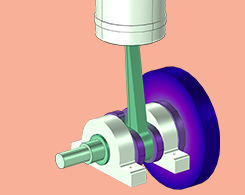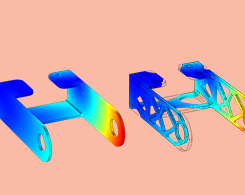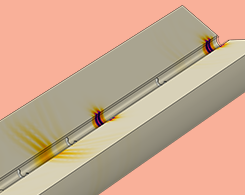Blog Posts Tagged Technical Content

How to Model Fluid Friction in Joints with COMSOL Multiphysics®
Follow along as we demonstrate how to model fluid friction in joints using 2 rotordynamics examples: a piston and a reciprocating engine.

Performing Topology Optimization with the Density Method
The density method simplifies the process of topology optimization. Get an overview of how to use a special density feature for topology optimization in the COMSOL® software.

How to Simulate the Carrier Dynamics in Semiconductor Devices
Learn how to simulate carrier dynamics in semiconductor devices with 2 examples: reverse recovery and forward recovery PIN rectifier models.

How to Model Piezoelectric Devices as Both Transmitters and Receivers
Certain types of transducers can act as both transmitters and receivers. We demonstrate how to use 2 features for modeling this type of piezoelectric device.

How to Model the Interface Trapping Effects of a MOSCAP
Looking to analyze interface trapping effects in a MOSCAP? Learn how to use a feature in the Semiconductor Module that enables you to add charging and carrier capture/release effects to a model.

FEM vs. FVM
Finite element methods, finite volume methods, or a hybrid approach: Which is the best choice for CFD? It depends on the fluid flow problem you’re trying to solve.

Using Discontinuous Meshes for Conjugate Heat Transfer Modeling
You can use different discontinuous meshes in neighboring domains in COMSOL Multiphysics®. This capability comes in handy, particularly when modeling conjugate heat transfer problems.

Global Modeling of a Non-Maxwellian Discharge in COMSOL®
Keep reading for a demonstration of how to model a non-Maxwellian discharge with the Boltzmann equation in the two-term approximation using COMSOL Multiphysics®.
